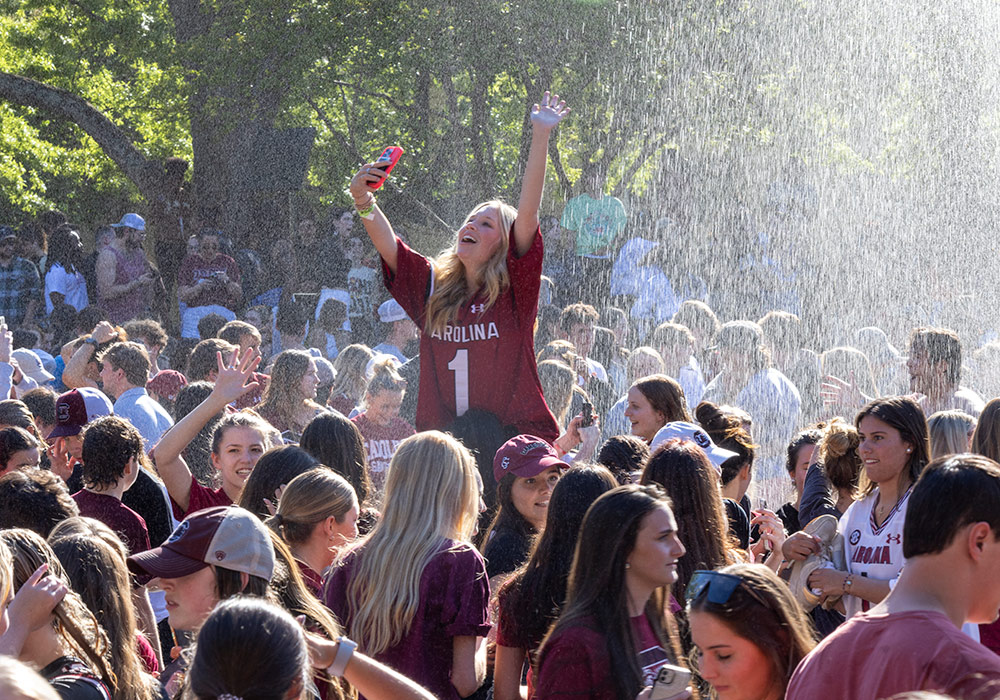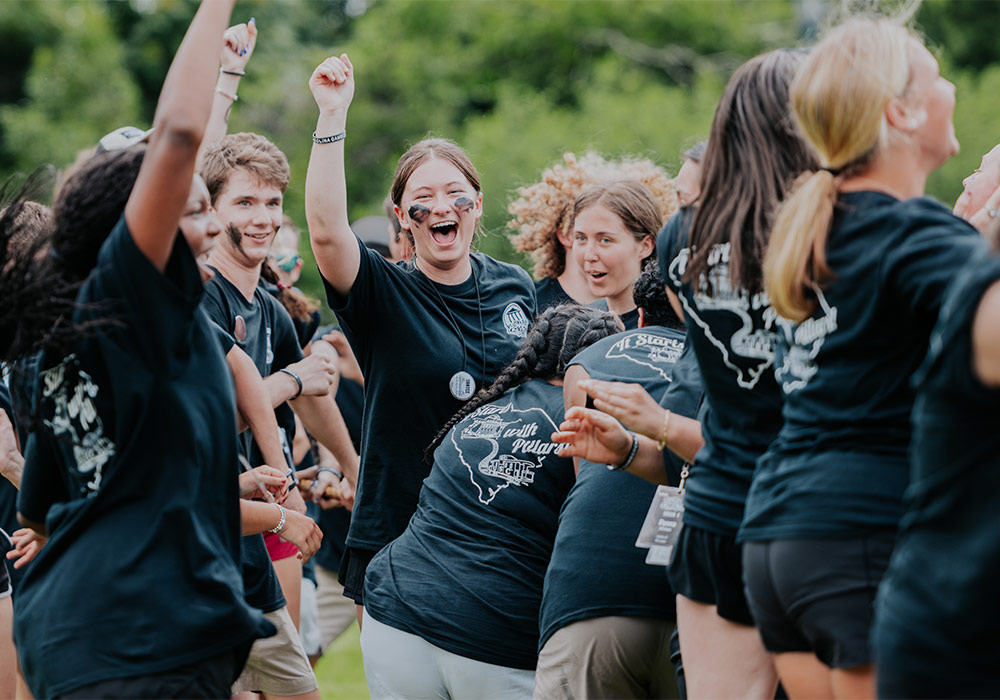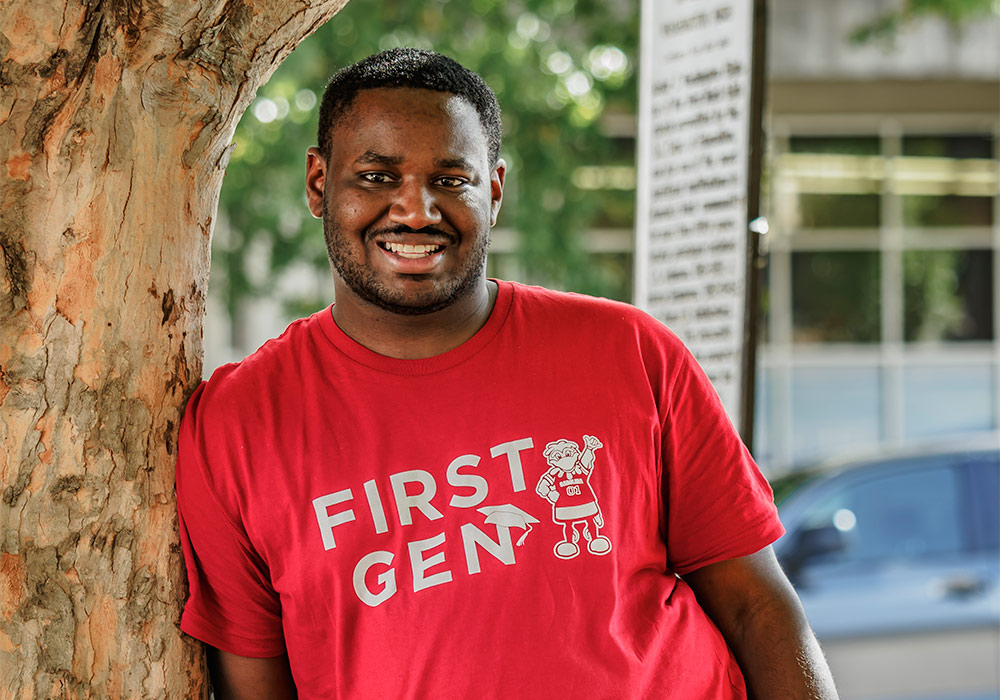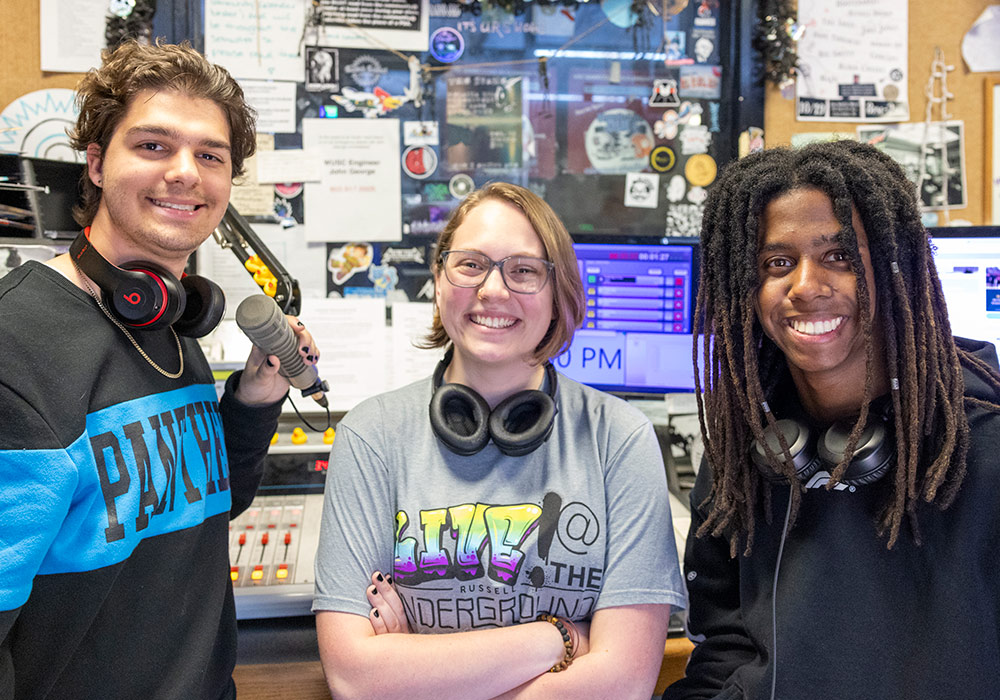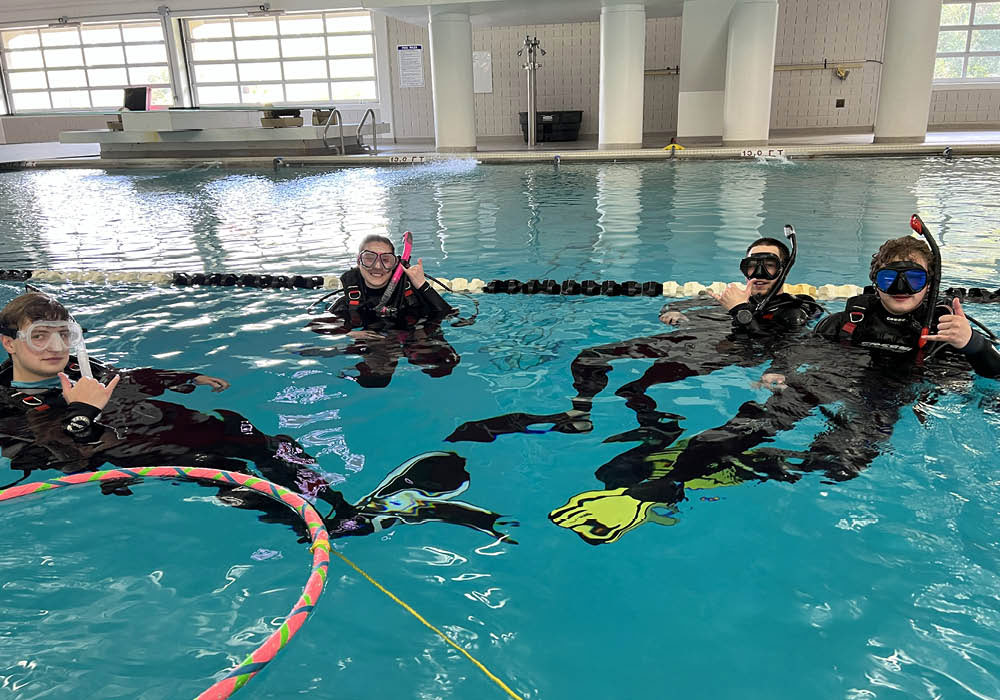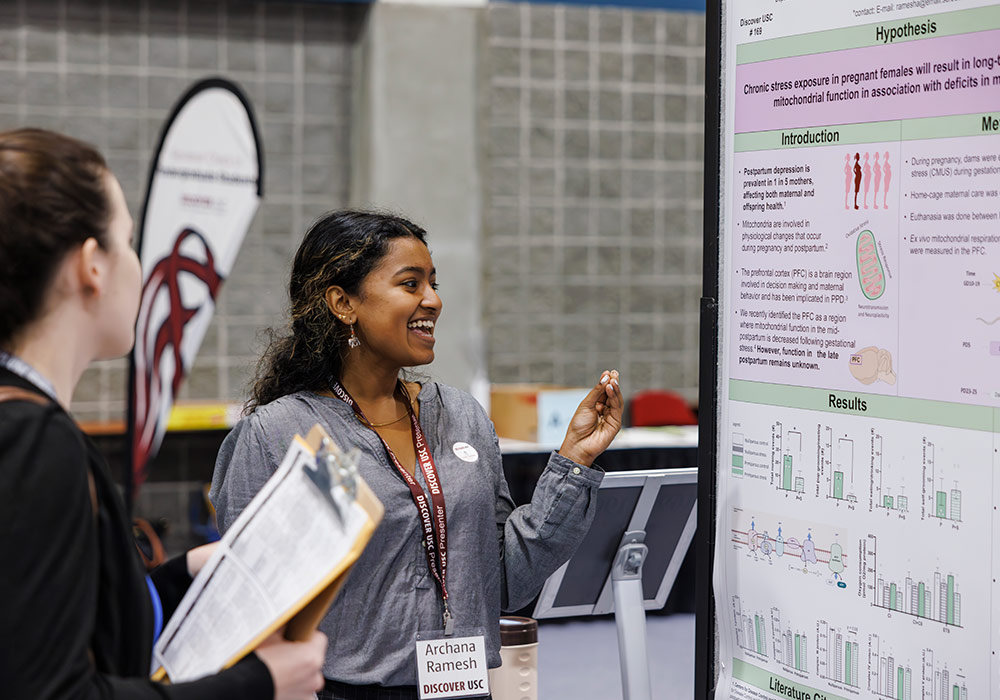Clips of videos of students and Cocky on Horseshoe for First Night Carolina, students watch fireworks in front of Russell House, students participate in tug-of-war at Pillars orientation, students in classroom, two students and professor talking in a lab, students celebrate in the library fountan, group of students cheering in front of Russell House
It doesn’t take long for University of South Carolina students to realize this is a special place. A walk around the Horseshoe, waving rally towels to “Sandstorm” in the student section at Williams-Brice, roaring the Game-Cocks chant at First Night Carolina — all welcome students to the Gamecock family.
But there is more to what it means to be a student at USC — much more. There are life-altering discussions in the classroom, mind-opening study abroad trips, new and lasting friendships, connections made with professors and mentors. There are long nights writing papers or studying in the library. There are off-campus internships that let students explore their future goals, all in a bustling capital city.
And then there’s the University 101 course, which created the first-year experience movement nationwide in the early 1970s and remains the cornerstone of USC’s top ranking for first-year experience. For many students, U101, the largest single course offering at USC, is a gateway that introduces them to what college can be.
However students choose to explore the college experience, USC offers a path. Here are a few stories of ways student can find their way at Carolina.
Gamecocks know how to celebrate in style.
Just take a look at what happened when the women’s basketball team finished the season with a remarkable 38-0 record and defeated Iowa in the national championship game.
As the clocked ticked down, hundreds of students rushed to the Thomas Cooper Library in the center of campus. When the buzzer sounded in Cleveland, Columbia was ready to celebrate. Off went the shoes and – splash – Gamecocks waded into the reflecting pond to celebrate with friends and classmates.
On a beautiful spring afternoon, with the fountain spraying and USC cheers erupting, students let loose celebrating an undefeated season with unbridled joy. And showing the world another example of why it’s great to be a Gamecock.
Evey Konstantopoulos learned about Pillars for Carolina from her mother, who stumbled upon it in an online parents’ group. Her mother thought it would be a great way for Konstantopoulos, who is from Maryland, to make friends and get to know the campus before starting college in the fall.
Her mother was right.
Pillars for Carolina, a four-day, student-led extended orientation program is designed to build community, expand students’ confidence and give incoming freshmen a jumpstart on the Gamecock experience.
For Konstantopoulos, a junior majoring in social work, the program was so important to her that she now works as the co-director of Pillars, giving back to newest member of the Gamecock family.
“I wanted to come back as staff because the community and energy that this program creates is infectious,” she says. “It really makes a giant school feel small. And you meet so many amazing people from this program.”
Curtis Pernell had a rocky transition when he arrived at USC from Dillon, South Carolina — the first person in his family to graduate from high school.
“It was a culture shock for me getting to campus,” Pernell says. “As an African-American male and being first-gen, I didn't feel like I fit in on campus at first.”
That changed, though, when he found a supportive cohort of faculty, staff and students in TRIO. Pernell soon learned his “why” of being on campus. And that meant getting involved and giving back.
“I met people that came from similar backgrounds. So I felt like, ‘OK, we’ve got the same story. I have my people here. I can belong.’ And I know people I can talk to if I’m having trouble or anything,” he says. “I became a student leader for TRIO. I was going around to different events and I started helping them plan the events. And then I became a mentor so I can help the incoming freshmen transition into USC.”
On USC campus, approximately 20 percent of the student body population is made up of first-generation students, and the university offers a full range of experiences, opportunities and resources to help them be successful. This year, USC opens the First-Generation Living and Learning Community in Maxcy College, to help freshmen transition to life at Carolina.
Luka Albaran, Brianna Hale and Aaron Jacobs became friends at the Maxcy College residence hall during the first few weeks of their freshman year, but the music lovers truly bonded as cohosts of their own radio show on WUSC.
Albaran saw a poster advertising DJ opportunities on the common room wall and encouraged his friends to join him.
A broadcast journalism major from Mount Pleasant, South Carolina, Albaran teamed with Hale, a music industry studies major from York, South Carolina and Jacobs, a double major in film and media studies and media arts from Columbia.
A team of DJs was born.
The campus radio station is just one of the myriad clubs, organizations and opportunities
USC offers to students. USC kicks off every semester with a day-long campus wide
Student Organization Fair, where students can check out student organizations, meet
members and learn how to get involved.
“I love (being a DJ at WUSC), but I wouldn’t love it as much if I didn’t have people with me,” says Albaran. “There are more perspectives when we’re coming up with what songs to play.”
There is no doubt that University of South Carolina students take challenging courses. Engineering, calculus, biology, accounting — and the list goes on.
But even students with a schedule jam packed with required classes can find space for an elective. And USC offers a host of classes that are fun, engaging, pique a student’s interest and may even lead to a new career or hobby.
In short, there are some cool classes offered each semester. From an introduction to comics studies, to learning how to scuba dive or play pickleball, to jewelry making or wedding planning, there are plenty of opportunities to expand your horizons – and learn some fun stuff – on campus.
A public health major interested in health inequalities, decided to assess what impact dollar stores may have on rural, impoverished communities.
A neuroscience major studied the brain’s responses to familiar and AI-generated faces.
And a public health major looked at whether sleeping in a bed with a dog influences dog owners’ sleep quality or physical activity level.
Those are just three of the more than 1,100 students and postdocs who presented their work at the annual Discover USC, showcasing the wide-ranging research at the university. From health science to humanities and AI to public health, USC scholars — including undergraduate and graduate students, medical scholars and postdocs — are working with faculty mentors and others to explore topics that interest them, learn more about research skills and work on how to present their findings to an audience.
